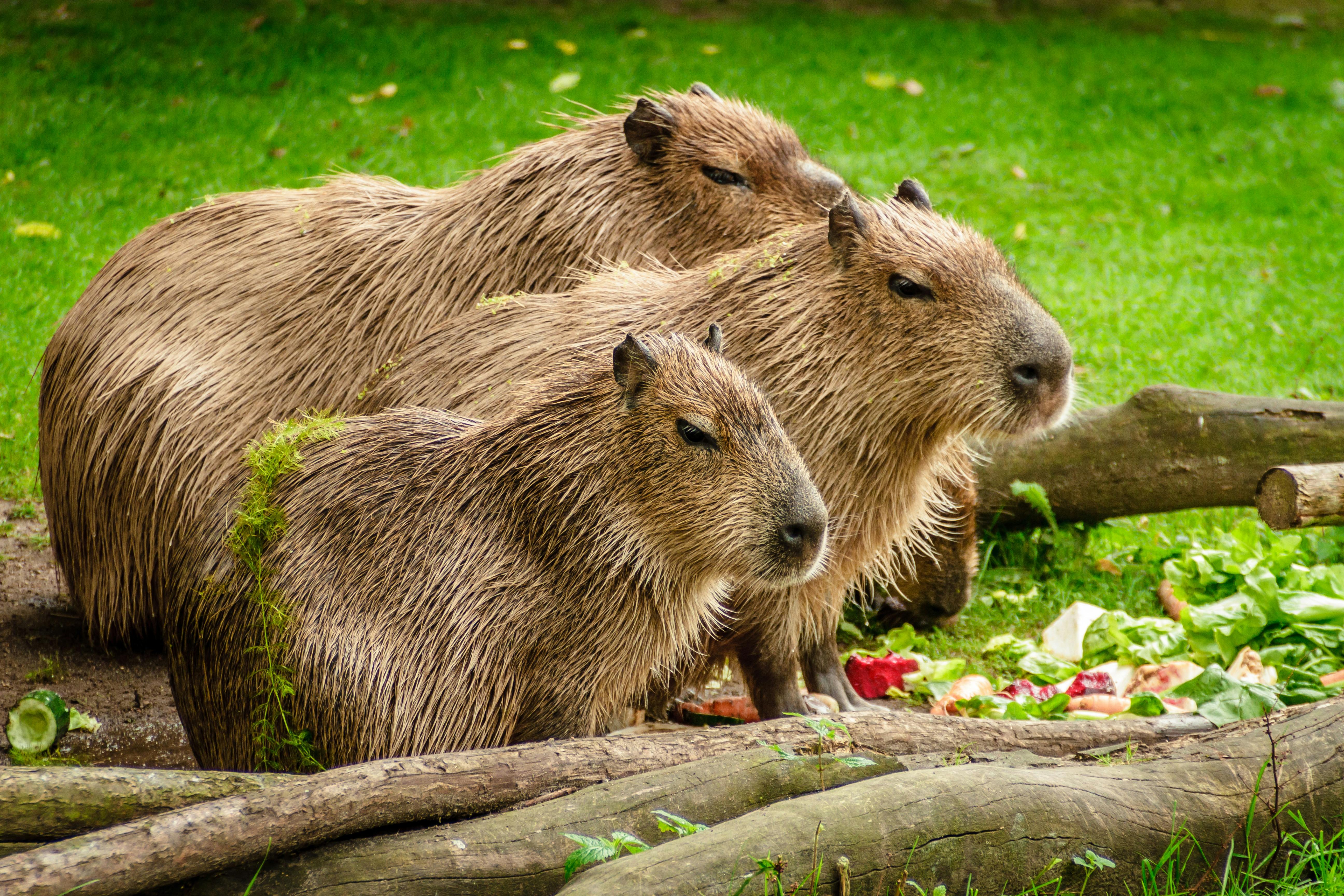The Curious World of Capybara Companionship
Imagine a pet that's part teddy bear, part swimming champion, and entirely unique. Enter the capybara, the world's largest rodent and an increasingly popular exotic pet. These gentle giants are capturing hearts worldwide, offering a blend of cuddly charm and aquatic adventure. But what does it really take to welcome a capybara into your home? Let's dive into the fascinating realm of capybara companionship.

The Legal Landscape of Capybara Ownership
Before considering a capybara as a pet, it’s essential to navigate the complex legal terrain. Laws regarding exotic pet ownership vary widely by country, state, and even city. In the United States, for example, capybaras are legal in some states like Texas and Pennsylvania but prohibited in others like California and Georgia. Prospective owners must research local regulations thoroughly and often obtain special permits. The legal landscape is constantly evolving, with recent changes in some areas reflecting growing concerns about exotic pet ownership.
Creating a Capybara-Friendly Habitat
Capybaras have specific habitat requirements that can be challenging to meet in a domestic setting. They need ample space to roam, with a minimum outdoor area of 12 by 20 feet. A large pool or pond is essential, as capybaras spend much of their time in water to regulate their body temperature and maintain skin health. The enclosure should include both sunny and shaded areas, with plenty of grass for grazing. Indoor accommodations must be spacious and temperature-controlled, mimicking their natural tropical environment.
The Social Nature of Capybaras
One of the most crucial aspects of capybara care is addressing their social needs. In the wild, capybaras live in herds of 10 to 40 individuals. As pets, they thrive best with at least one companion of their own species. Solitary capybaras can become stressed and depressed, leading to health issues. Their social nature extends to humans as well; capybaras can form strong bonds with their owners and even other household pets. However, this sociability also means they require significant daily interaction and attention.
Diet and Health Considerations
Maintaining a proper diet is key to capybara health. In captivity, their diet should consist primarily of grass hay, supplemented with fresh vegetables and specially formulated rodent pellets. Treats like fruits should be given sparingly due to their high sugar content. Regular veterinary care is essential, but finding a vet experienced with capybaras can be challenging. Common health issues include dental problems, parasites, and skin conditions related to inadequate water access.
The Financial Commitment
Owning a capybara is a significant financial undertaking. The initial purchase price can range from $1,000 to $3,000, depending on the breeder and location. However, this is just the beginning. The cost of creating and maintaining a suitable habitat, including a large water feature, can easily exceed $5,000. Ongoing expenses for food, veterinary care, and potential property modifications add up quickly. Prospective owners should budget for annual costs of $2,000 to $3,000 per capybara.
Ethical Considerations and Conservation Impact
The rising popularity of capybaras as pets raises important ethical questions. While captive-bred capybaras can make affectionate companions, there are concerns about the impact on wild populations and the animals’ welfare in captivity. Some argue that the exotic pet trade, even when legal, can inadvertently support illegal wildlife trafficking. Conservation efforts for wild capybaras are ongoing, and potential owners should consider supporting these initiatives as an alternative to pet ownership.
The Rewards of Capybara Companionship
Despite the challenges, many capybara owners report deeply rewarding experiences. These intelligent animals can learn to respond to their names and even perform simple tricks. Their gentle nature and unique personalities often make them beloved family members. Owners describe the joy of watching capybaras swim and play, and the calming effect of their presence. However, it’s crucial to remember that these rewards come with significant responsibility and commitment.
In conclusion, capybara companionship offers a unique and potentially fulfilling experience for those prepared to meet these extraordinary animals’ complex needs. From legal hurdles to habitat creation, diet management to social requirements, owning a capybara is not a decision to be taken lightly. As interest in exotic pets continues to grow, understanding the full scope of capybara care is essential for ensuring both animal welfare and owner satisfaction in this curious world of unconventional companionship.






